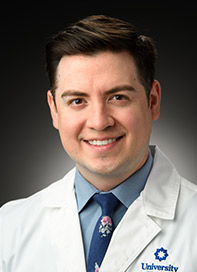Dr. Leo Lopez III, University Health’s medical director of school-based clinics and medical director of the Institute for Public Health, shares tips on how to get the most out of your next medical appointment.
Prepare for the Appointment
A little preparation before your next medical appointment can help ensure you get the most out of your time with the provider. To help your appointment go as planned, consider bringing the following items with you:
- A list of questions or topics you want to discuss
- Current medication list and any needed refills
- Health logs you keep at home, such as blood pressure readings or insulin levels
You should also be prepared to share any health changes or new symptoms.
Bring a Support Person
Some patients find it helpful to bring a family member or trusted friend with them to their appointment. This person can assist the patient with remembering everything the provider said, including treatment plan instructions. This can be especially helpful for patients seeing a specialist for the first time or for follow up appointments after medical procedures.
Advocate for Yourself
Patients should advocate for themselves by taking an active role in their care. This involves asking clarifying questions if your provider’s instructions are unclear or speaking up if you disagree with the treatment plan your provider has suggested.
“We encourage patients to ask questions during their doctor’s appointments. It is appropriate to ask doctors to repeat themselves or to slow down when they are speaking. If a patient disagrees with a treatment plan or medication prescribed, doctors want to know. Comprehensive medical care is a team effort comprised of both doctors and patients,” Lopez said.
Overcome Language Barriers
Patients have a right to receive health care in their preferred language. Physicians do not want patients to delay care because of a potential language barrier. Patients should know that doctors have tools available to help improve communication when language is a concern.
Some providers use interactive tools, such as an iPad, to communicate with non-English speaking patients. University Health has a translator service that physicians can use as interpreters when needed. Physicians and clinics should anticipate their patients’ language needs, and deliver care that is culturally and linguistically appropriate.
“We utilize different tools to ensure patients receive care in their preferred language. We never want language to be the reason why patient delays or forgoes medical care,” Lopez said.
Achieve Your Health Care Goals
Medical professionals want all patients to feel satisfied with the care they receive. Preparing for appointments in advance can help patients achieve their health care goals. However, if a patient leaves an appointment feeling dissatisfied, further action may be necessary. This includes:
- Follow up with your clinic or doctor after the appointment if you have unanswered questions
- Ask to speak to a manager if you have a complaint
- Sometimes, a second opinion from a different physician can be helpful
“We want patients to be confident and verbalize any concerns that arise. Remember, physicians want to work with patients to achieve their optimal health status. Good communication between patients and their doctors can help achieve this goal,” Lopez said.





